#and like except for a few details like Vincent not having siblings and something that's a spoiler it is all so accurate whhwh
Explore tagged Tumblr posts
Note
Hello Nipuni,
This isn't really an ask, but I wrote a little story poem about Vincent and Lucille, both of which I really like :) Here it is:
~~~***~~~
"A late October wind began to sing, from the north. In duet the sea waves riled up and began to lash out at the cliffs and wail for all they were worth. Lucille put down her book, enthralled in a flash, for her heart was filled with the ocean's soul, but though she heard its calling, Vincent did not. Like she'd told him before, in his chest was a hole, a pit filled with sharp ice, where it should have been hot and aflame, like what the ocean wished to convey through its screaming and singing with the wind as its guide and she knew not, as she watched his face then, with dismay, that his indifference, displeasure, was a guise meant to hide his own book, his own story, deep down in his heart, filled with darkness and loathing of both others and self, which she didn't, could not know; their hearts must be apart and this dark and horrible book firmly shut on his shelf.
"Mister Vincent," she said, turning to him from the window, at which she watched the waves soar, with unspeakable longing. "Let us go for a walk, let us with the wind mingle, In its passionate song find a sense of belonging."
Vincent looked up, from his practical paper of news and of business and things meant for men of his status. An eyebrow was arched, the mask of reading reserved for a little bit later, dark thoughts and jaw-clenching put on hiatus. Sharp words were brought to his tongue for this woman so strange, this woman so pitiably fanciful, innocent and romantic, she sent his damned, accursed heart far out of his range to control, sent his heartbeat and movements unpredictable, frantic, and his temper escaping from its papery cage, slipping through his steel fingers, fingers hardened by life, sending his insides twisting and turning with black, suppressed rage at himself and at her and at existence’s prison, casting between them the shadow of strife.
He donned his throwaway words with a chuckle and scoffed, "Go for a walk?" Then he thumbed at the cold, silver head of his cane as he thought. "I don't think so. Over this vile wind we won't hear ourselves think, save talk." He believed it was triumph with this statement he wrought, so he twitched his practical paper once more, preparing a theatre of silence and an occupation parade, when she moved with a face which deemed him a bore, away from the window, in her own masquerade; she summoned a servant, said, "My coat, if you please," and after donning it, turned, and spoke to him, prim: "What, Mister Vincent? I've a coat, I won't freeze. I know the way to the coast and it isn't too dim. You don't wish to come with me? That's all very well, it will give me something to speak of later; a short story to tell."
Vincent felt his veins searing, his muscles go tight, he rose from his armchair; his paper was crushed - he had tightened his fist so he his temper could fight; a fight which he lost. His face became flushed, as he met with her stubbornness, will unmovable, cursed for he loved it and hated it and let his heart burn every time they argued and feuded, and he deemed it the worst, for these matters they fought over were as trivial as rhyme!
"Are you foolish?" he cried, though the answer he knew, "Are you mad, Miss Lucille? Do you wish to be dead? Have you lived so little years, have you lived them too few? Have you really so little gathered here, inside your head? You will go to the coast in this ridiculous storm?! Great heavens! What now!"
He scowled down at her slight, very beautiful form, and found a frown on her face from his part in this row. "And if you found me dead, Mister Vincent, what difference would it make?" His heart stilled at her words, but she wasn't quite done. "By far you've only treasured silence, deemed my presence a mistake with your snide words and cold comments which over warm ones have won. Not everybody's a poet. Not everyone's blessed with a heart. But you're aground, I'm adrift. I can and will move, as you stay still as stone-" Vincent couldn't take it. She was tearing him apart with her words without truth. Heavens! She said she felt alone! But she didn't know! She knew not that the reason he could breathe when before he was drowning in his own passionate sea and had to bury his heart, let it sleep buried beneath the rocks he built his existence upon to be free, was her! Her alone, with her strange, silly fancies, her words which woke up the parts of him he forgot he possessed, her books which she hid the titles of sheepishly, her romances, she alone put his howling, black demons to rest!
Lucille's eyes widened. She didn't know this sight, which appeared when his heart twisted into knots like a rope, when his pain clawed itself out of his chest in a bloodthirsty fight with the rest of his tolerance and remnants of hope. Vincent leaned on his cane. His breathing was short - his left breast was finally soaked with the red of his veins - no words would help him, it was no use to retort for Lucille was right to think of her own hidden pains, which he knew not how and thus did not reach her to soothe, too used to his stupid, practical papers and silence. The former now lay crumpled and wretched and he could not move, save whimper and clutch at his chest in an attempt at vigilance. "Mister Vincent," she whispered, as he fell into his chair. "You are bleeding… Your chest!" His cane fell with a clatter as his eyes disobeyed him, shedding a tear. "It's nothing," he managed, voice hoarse. "I just need to rest." He looked at her and whimpered; in her eyes… Was it fear? What was it of? Of his pain, or of him? Could it be that she held him even a little bit dear?
"Vincent," she spoke, her voice quiet and firm, "you're in terrible pain." He didn't speak; he could not. He clutched at his chest, repressing tears and helpless snarls in vain, this damned stoic facade finally put to the test, and failing spectacularly. Lucille moved to his side. She was a step away, so close yet so impossibly far. "I hurt you," she spoke. She didn't seem surprised, nor unwilling to take a leap, far over this bar of propriety and tension still hanging thick in the air, as she abandoned all harnesses and sat in his chair- On his knees. Vincent froze, then relaxed at her touch, into her touch, as she placed a hand to his cheek. It was so gentle, so warm, so perfectly much, So strange, so alive, so needed, unique to this setting of dark and cold that he lived in, with his intestines, organs in shreds, from years of eating ice, from being the grounded cliffs which pierced the sea upon which memories were adrift in. And now he found himself on the doorstep of paradise.
"Lucille…" he breathed, his hands reaching out. Like a reckless child he embraced her, pressed her to his ravaged chest. "Don't go out in this storm…” he managed, “I know I need not shout… But so much bad can happen. You'll catch a chill at best. And what if something worse passes? What if… the sea takes you?" She warmed him with her embrace, so he could breathe again. "I know you hold the sea dear." He tried to smile, but failed. "I used to love it, too." Memories of waves and taken love made him wince in pain. Lucille watched him with her mismatched eyes, his blood soaking her white dress. She took a breath and sighed. "I understand," she said. "It was in the papers years ago, and so I will not press." Vincent finally said it. "It was I, who my brother to the stormy shores had led. It was my fault he went so early.” He hadn't spoken it for years, his brother's untimely death, his last words still ringing in his ears. His voice cracked like splitting rocks, as he remembered him, and pain. "I don't want you gone, Lucille. Please don't think that way." He clutched her tighter, as tight as he dared, and she did not complain. "In fact… The reason I can smile a little is because you stay."
She looked at him with her eyes wide, her lips parted in surprise, but not for long. She looked firm and clutched his hand, her chin tilted towards him. "Say it, then, Sir," she whispered, "don't wait for heart's demise." Vincent didn't dare believe it, but he took chance upon a whim: He enveloped her face in his hands, and though his heart paused beating, he bent down and said, "I love you", their lips and worn souls meeting."
~~~***~~~

HELLO!!! I need you to know that I've been losing my entire mind over this piece ever since I opened my inbox today. I don't know how you managed to capture the tone and characters and setting so well when I've shared so little about them!!! This is so spot on it can easily be a dream sequence in the actual story!!! It is also written so beautifully I'm restraining myself from making this an all caps wall of text singing your praises!!! I can't believe you wrote this about my characters I feel so undeserving oh my goddd you just breathed life into this little story in progress of mine and filled me with joy and motivation to work harder on it I can't thank you enough!!! This means so much to me I don't know how to convey it aarghhhhh THANK YOU SO SO MUCH 😭❤️❤️❤️❤️
#nips replies#are you seeing this!!! a whole poem I'm in tears#and like except for a few details like Vincent not having siblings and something that's a spoiler it is all so accurate whhwh#I've only ever shared a few drawings and comments about it!! just how!! AHHH you get it you get it!!
57 notes
·
View notes
Photo


𝕠𝕙 𝕕𝕠𝕟'𝕥 𝕪𝕠𝕦 𝕨𝕠𝕣𝕣𝕪 𝕪𝕠𝕦'𝕝𝕝 𝕗𝕚𝕟𝕕 𝕪𝕠𝕦𝕣𝕤𝕖𝕝𝕗 𝕗𝕠𝕝𝕝𝕠𝕨 𝕪𝕠𝕦𝕣 𝕙𝕖𝕒𝕣𝕥 𝕒𝕟𝕕 𝕟𝕠𝕥𝕙𝕚𝕟𝕘 𝕖𝕝𝕤𝕖 𝕒𝕟𝕕 𝕪𝕠𝕦 𝕔𝕒𝕟 𝕕𝕠 𝕥𝕙𝕚𝕤 𝕠𝕙 𝕓𝕒𝕓𝕖 𝕚𝕗 𝕪𝕠𝕦 𝕥𝕣𝕪 𝕒𝕝𝕝 𝕥𝕙𝕒𝕥 𝕀 𝕨𝕒𝕟𝕥 𝕗𝕠𝕣 𝕪𝕠𝕦 𝕞𝕪 𝕤𝕠𝕟 𝕚𝕤 𝕥𝕠 𝕓𝕖 𝕤𝕒𝕥𝕚𝕤𝕗𝕚𝕖𝕕 𝕒𝕟𝕕 𝕓𝕖 𝕒 𝕤𝕚𝕞𝕡𝕝𝕖 𝕜𝕚𝕟𝕕 𝕠𝕗 𝕞𝕒𝕟
full name: gabriel vincent craine
nicknames: gabe
age: 34
date of birth: sept. 7
zodiac: virgo
gender: male
pronouns: he/him
sexuality: heterosexual
physical
hair color: blond
eye color: blue
height: 6′2″
weight: 194 lbs
personality
morality: lawful neutral
positive traits: efficient, practical, diligent, focused, intelligent, thorough, shy.
negative traits: hypercritical, demanding, hard to please, self-conscious, reclusive.
job: lawyer
skills: organized, good at time management, unshakable, can speak a few languages (english, spanish, french, and japanese), writing, small guitar skills.
family
parents: vincent and gloria craine.
siblings: isaiah craine ( location unknown deceased )
backstory and details - TRIGGER WARNING : mentions of alcoholism, miscarriage/abortion, gun violence, divorce. feelsy shitTM
✴ ✴ ✴ ✴ ✴ ✴ ✴ ✴ ✴
home life was good. born to vincent and gloria craine one sunny labor day weekend, gabriel was their miracle baby. he was a blond haired, blue eyed, chubby cheeked toddler who captured their hearts and affections beyond what they could ever imagine. even when their youngest was born, isaiah could and would never live up to his brother’s name.
his family was very catholic, and even in that he was diligent. mass on sundays, easter and christmas, confirmed and baptized, he did what was expected of him as a man of his faith. he was thankful academics kept him too busy to become an altar boy, indulging so deeply he only passively believed in felt like sacrilege beyond what he thought himself capable of.
he was a happy child that grew into a golden boy. valedictorian of his high school, gabe was heavily involved in choir, track, debate team, student council, and won prom king in his junior and senior years without much effort. it wasn’t because he considered himself popular, but because he was personable. he wasn’t snooty or above hanging out with any and every faction of people around school. he found bits of himself in everyone and was always willing to help or tutor in any way he could.
when it came time for college, it came as no surprise that he was fit for ivy league. his choice was dartmouth, somewhere with a liberal atmosphere where he could study without the competitive, stuck up harvard-yale students hounding him to do more and be better. he double majored in english and history and chose to minor in computer science. his degrees were achieved and he finished top of his class.
he attended law school at oxford, electing to study abroad in the uk and take in more than what chicago and new hampshire could. he knew what he learned in litigation for foreign law wouldn’t be useful in america, but it was important for him to understand the nuances of european law as someone interested in international law.
while at oxford, he met danielle fournier, a law student in his class that shared interests with him; from music to art to history and philosophy, she bewitched him body and soul and he fell in love harder than he thought possible. for the moment, he thought she was the endgame for him.
when it came time for him to move back to america, danielle came with him. he enrolled at yale law and worked a full-time job as an assistant in a law firm, doing what he could to support himself and the girl he loved. he did everything right; he went to school, got a dream job, moved off to new york and worked himself to success, proposed to the girl and married her. everything was was it should have been.
he was a shining beacon of hope and an example to everyone in his family, most of all his younger brother. he knew that isaiah had an odd sort of idolization over him. he was the big brother, the one who encouraged and stood as a confidant and first friend for isaiah.
the family seemed complete; two perfectly happy parents, a son with a wife and a bright future, another dating a young, successful woman. they seemed the picture of perfection, but there was some nagging presence that spoke otherwise. his parents were more friends than husband and wife- they stayed together for appearance sake. gabriel was a ceaseless workhorse, and though he did his best to be the good man who came home by 7pm, when he did come home, he found his wife drunk and drowsy, always reeking of expensive wine and stake perfume. and as for his brother and his girlfriend; there was something that felt off, whether it was in their relationship or his own, he did not know. however, something in the back of gabriel’s mind that knew his and katerina vasile’s stories would not end as they had began; acquaintances that only spoke at family gatherings.
he never believed in soul mates or twin flames, despite believing in the presence of a soul. he never understood that even upon a single meeting someone could mean so much to another person right up until the moment it happened. he barely knew katerina, and yet he saw something in her he knew he wouldn’t ever be able to forget. she would stay in his mind forever, and though he loved danielle with everything he had in him, he knew that even in the darkness when he lay drifting, it was her eyes he’d remember.
he would never act on it; he was married and happy to be, and whether the relationship between himself remain stale and passive or grow into platonic companionship, he was glad for either, though he would prefer the latter. if it meant being to keep those eyes in his life, it was worth it. he liked katerina, cared for her and paid attention to what she said, far more than his brother seemed to, though his interaction was not inappropriate.
it wasn’t often he had to be strict or commanding over the younger sibling that so adored him, but a family christmas party changed that. isiaiah was showing off; acting like a prick to katerina for the sake of bolstering himself in his brother’s eyes. gabriel hated it. excusing himself and his brother with a charming smile, gabriel gripped isiaiah by the flesh on the underside of his arm and dragging him to a quiet section of the house, gabriel’s voice dropped low and dripped venom that had never before passed his lips in the presence of family: “if i ever fucking see you treat that girl like that ever again, i’ll drag you outside and break your face against the goddamn curb, got that?” he threw his brother’s arm and stormed back in before another word could be said, plastering on a smile as he went to keep danielle from pouring another drink.
danielle was always a big drinker, but her usage escalated well within their marriage. she got pregnant and while gabriel thought she was happy to be, she was not. behind his back she was taking doses of a prescription drug that halts progression of pregnancy. she lost the baby and gabe was devastated. he’d never really thought about being a father, but the when presented the prospect of it, excited him. he thought he could be a good father, not only because he was stable and happy, but because he loved the baby from the moment he got the news.
though hurt beyond measure, he was hopeful; they managed once, they could manage again when the time was right? if there was a god that saw his diligence, surely he’d bless them with another chance?
danielle’s guilt drove her to drink and drink heavily. she lied to the man she loved and couldn’t quiet the raging inner monologue that scorned save for drowning it at the bottom of a bottle. more than one argument came of gabe begging her to slow down and her subsequent refusal. he lost a child, he didn’t want to lose his wife, too. he stood with her through it all, hoping that one day everything would be better.
over a year later, happy news came once more. danielle was pregnant again, and she seemed elated. gabriel was over the moon. overnight everything seemed to improve: his wife had stopped drinking, he was going to be a father, they were a picture of happiness ready to work their lives around a new baby. not not everything was as it seemed.
one night, roused by a work call, gabriel realized his wife wasn’t in bed beside him. worried she might be feeling poorly from morning sickness he followed the trail of light into the bathroom and glanced in, just in time to watch danielle throw back a pill. he would have ignored it, but something in his gut told him otherwise. when he pushed the door open further, danielle jumped, frightened and caught off guard. the pill bottle fell to the floor and rolled to his feet. when he saw the label, he recognized the prescription name as a pregnancy terminator from a lawsuit he’d once worked.
his heart shattered in an instant. it’s important to note that gabriel never would have forced danielle to go through with a pregnancy she wasn’t comfortable in. and while it would have hurt, he would have accepted her decision with grace and understanding. it was the fact that she bold-face lied to him. she lied about being happy, she lied about wanting to build a life with him, she watched his grief and kept everything locked away, and was set on doing it again.
gabriel wordlessly moved back into the bedroom and got a suitcase to pack a bag. he wasn’t ready for a separation or divorce, he just couldn’t have her in his ear when he so desperately needed to think.
while his back was turned, danielle reached into his bedside table and pulled out a loaded gun he kept in case of emergencies and held it to his back. she demanded he hear her side of it before going anywhere. and so he did. for two days he was kept downstairs in the kitchen at gunpoint, allowed to do nothing except watch her drink and listen to her rant and beg his forgiveness.
she waved the gun around recklessly, throwing empty bottles on the wall behind him and the floor in front of his feet. he watched her do this with a distant, cold, dejected demeanor, never jumping or shying away from the blows she had to throw. he was hurting, more than he realized he ever could and numb to her wallowing. the suffering he felt was her cause, he was angry. hurt. he didn’t want to hear her, he didn’t want to look her in the eyes. there was a grim sense that they would both die there in that house, that she would put the gun to his temple and shoot and then die in any which way she chose to do.
it took all of his resolve and none of his might to realize that what he saw in her was a facade. for so long, he’d been the best he could be: for her, for his parents, even his undeserving brother. and where did it get him? alone. his parents never worried; he was the exalted heir, the good boy, they didn’t have cause. and his brother? he had taken all of gabriel’s shining example and corrupted it into nothing more than pretense to get where he needed to go before he commanded rule over dominion that was not his; an abusive, negligent tyrant no better than the pharaoh of egypt who let his people die for the sake of his pride. and his wife, the woman he’d devoted life and happiness to, turned on him with a glock aimed at his chest.
a beacon of hope came on the morning of the third day when his partner at the firm kept calling. when you’re a good lawyer, you make enemies with dangerous people. when you’re a great lawyer, you guarantee those enemies become lethal. gabe was a great lawyer. radio silence for two days was uncharacteristic for gabe, everyone had reason to worry. although the same could not be said for isaiah. danielle grew steadily more and more frustrated by the noise and gabriel told her to let him talk down the situation to keep the firm from calling again. she steadily agreed. it was the first time gabe had ever thanked god for making his wife an alcoholic.
for a long time, he and his partner established code words as a safety measure. different words had different meanings, the most rehearsed of which was BOOTH. as in john wilkes booth. as in someone was holding a gun to his head. so when gabriel said: “hey, i had to rush out of town for a family emergency, can you email me the details of the BOOTH case to look over when I get home?” danielle was none the wiser. but the partner knew to dial 911.
when the cops and ambulance showed up, everything went to shit. danielle panicked and shot the gun when they kicked in the door, frightening her into pulling the trigger. the bullet lodged in gabriel’s left shoulder and knocked him into the broken glass on the floor. realizing her mistake, she brought the gun to her head. the cops wrestled her down before she could pull the trigger for a second time.
once discharged from the hospital, gabriel drew up divorce papers, a restraining order, and a lawsuit. he got his divorce, he got the restraining order, and danielle was placed in prison.
gabriel left new york after that, electing to go back home to chicago. once back in the windy city, he looked for work as a private lawyer, one who wouldn’t join a firm until he could scope out which councilors he chose to have on his side and those he chose to fight.
working for the vasile family wasn’t planned, but he seemed to find his niche there. he’d seen plenty of violence in the world, he knew how ugly it could be, and he knew that even those closest to him were monsters in disguise. it was his time to chose to have on his side and who to fight for, rather than against.
seeing katerina again hadn’t been his motive, but he couldn’t say that those eyes wouldn’t bring just a little bit of light to his darkest days.
#&&. gabriel || intro#&&. gabriel || visage#&&. gabriel || isms#everyone blame leia for this#hermione too#crimson.intro#&&. trigger warning#alcoholism tw#miscarriage tw#abortion tw#divorce tw#gun violence tw#i think i tagged everything
5 notes
·
View notes
Photo
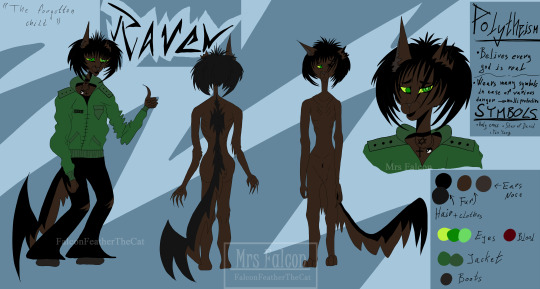
Finally, I present you one of my main characters from my universe Shadows of the Real World - Raven. BASIC INFO: Full name: Raven Wintson - street girl - unheathly skinny (indigestion) - lives with Vincent who saved her life - really likes cosplaying (steampunk) - childish, good girl - permanently sad, but her acting skills make her look always happy Family: - father: Charles Wintson (Balinese x Short haired oriental cat) - mother: Sharon Wintson (Czech curly cat) - brother (oldest sibling): Jay - sister: Sparrow Gender: Female Age: 15 years (from the beginning of the written story) Height: 171 cm Species: Javanese cat (long haired oriental cat) Native language: British English Born country: Great Britain Formerly lived in: England, Austria Curently living in: USA Interests: Polytheism Special powers: Empath (feels others's emotions like her own) DETAILED HISTORY: Born into wealthy family Raven comes from a well known wealthy family of black oriental cats (especially from her grandpapa's side) in Great Britain. Many generations lived here until the day a new "trend" showed up - breeding and bringing up new species. By the time of Raven's gandpapa it was a hot topic - for that reason he arranged a wedding with Balinese cat (who moved into England from USA, not only because of the breeding but also because of her love for this country). But to the pair's bad luck their son was still a short haired oriental cat and a small hybrid. Even though their only son didn't have any signs of Javanesse cat, he was still bearing the typical features which inherited his youngest child - Raven. Raven's father, Charles, was very often told about pure blood and how the generation of black oriental cats in England is important to him, however Charles's parents never liked him. On a purpose he found a new wife for himself from a different breed - Sharon, a czech curly cat. The wealthy family had never run any businesses, so Charles came up with one - a fashion factory, "Wintson factory for modern age", were his wife helped him from the very beginning. When first child was born, Jay, Charles saw a perfect model in his son for his fashion factory. Jay worked in his father's factory for a long time until Jay's second sister was born. Jay was sick of that live - everything so perfect, always had to do as their father said. Jay simply didn't want to continue this empty life and didn't want his youngest sister to walk this way as well. Raven liked his brother and with time Jay spoiled her from little princess into gothic girl. Disappointing her parents As Raven grew, her features of Javanese cat were showing up. Her body was slim, eyes green like her grandfather's and tall figure. In few years Raven overgrown all of her family members, except Raven's grandpapa. Raven's grandparents truly loved her. "Look at this precious little girl! A beautiful pure Javanese cat!" Raven's father, Charles, could not stand this - seeing how his own parents preffer Raven over their own son. Charles grown cold inside and everytime he saw Raven, his anger and jealousy grew bigger. Raven's mother, Sharon, saw a perfect fashion model in her but Raven never enjoyed dresses and huge decorative hats. One day Charles decided to cut his relationships with his parents and with England and moved to the new start - his main reason was to separate Raven from her grandparents. That day Raven lost her grandparents and her beloved brother who left to start his own, new life. New country, new problems Charles and his family moved to Austria where his wife's, Sharon's, family helped them a bit. Meanwhile Charles was excited to start his business here, Raven was terrified. She knew Austria was just like Germany - ruled by Germand shepherds, dogs. "Don't worry, Raven. They love cats!" They hated cats - with the first time Raven entered new school, she got bullied by those german shepherds. They were chasing her just like a prey. Thanks to this, Raven was kept in her parents' house and was taught from her house. She was forbidden to leave the house. For another few years Raven spent locked like a rat in cage. Worst decision Charles's business was falling apart and luxury life was on a thin ice. Charles couldn't support all of his children and gave an offer to his second daughter - Sparrow. Sparrow always aspired to be a fashion model in her father's company but thanks to her wide figure, inherited after her mother, it wasn't possible. Charles suggested her a solution: "Either you take her far away from us and I'll let you become new model in my company, or your sister will take away all of your fame and I won't help you with anything anymore." It was decided then. Sparrow bought fly tickets to America for Raven's birthday. Raven believed her sister and didn't find anything suspicious. However, on one public event Sparrow dissapeared. After few hours Raven went back to the hotel were her and Sparrow were accommodated. But to Raven's surprise, the staff stopped her and told her that Sparrow already left. "We saw her get in taxi which took her to airport." Raven spent her last money for taxi to take her to airport after her sister but it was too late. As Raven ran out, she saw her plane already take off. It was over. She was left alone. Life of a street rat Two month living on streets almost cost Raven's life. Autumn has begin and with growing hunger Raven was forced to enter the great city to find something to eat. To her bad luck, a local gang spotted her and tried to chased her out of "their region". However, Raven ran into dead end and the street rats taught her a lesson. Raven lost consciousness and didn't remember anything after that. Heros do exist After Raven woke up, she found herself somewhere in a metal building, where lived an older wolf. From the very beginning she feared him, but with time they got to know each other and she trusted him. As the time went, Raven built a new bond with her savior. She forgot her old family and accepted his new savior, Vincent, as her own father. Vincent was always there for her until the very end... --------------------------------------------------------------------------------------------------- I hope the text is understandable This post/text describes Raven's detailed story, however, it's not all! There's so much more what will happen, but hopefully I'll tell you the story through writting or artworks :3 I hope you enjoy this, 'cuz it took so much time for me and I put a lot of effort into this... Vincent, you're next.
Artwork, Raven, story & SotRW (universe) © me
#my art#raven#sotrw#artwork#ref sheet#reference sheet#digital#digital drawing#drawing#cat#animal#anthropomorphic#anthro#anthros#anthro character#anthro furry#digital art#original#oc#ocs#my oc#original character
2 notes
·
View notes
Text
My Review of Fushigi Yugi

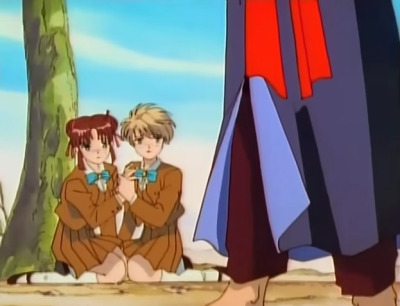






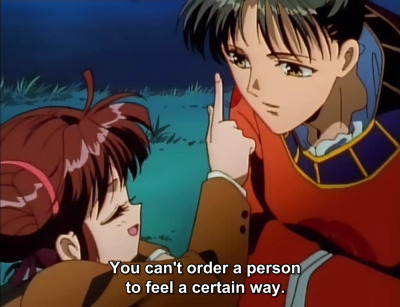




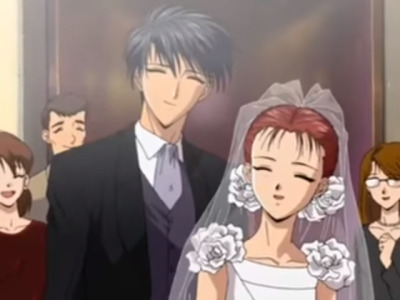

#fushigi yuugi#fushigi yugi#miaka yuuki#yui hongo#tamahome#hotohori#nuriko#mitsukake#chichiri#chiriko#taisuke#nakago#mayo sakaki
48 notes
·
View notes
Text
Creativity and Mental Illness
“If people could see into my heart, I would almost be ashamed - everything is cold to me - ice cold,” (Gay 91).
Many psychologists, looking back at Mozart’s life, believe that Mozart suffered from depression or bipolar disorder. Mozart, although his music was succeeding, would often talk in his letters to his father and others about feeling sad and guilty, that his interest in composing was decreasing, he was having a loss of energy, and was unable to concentrate. Mozart was recorded as having an abnormal sleep schedule, not being able to handle money, and having troubles with alcohol. According to today’s diagnostic standards, Mozart had depression, and perhaps mild bipolar disorder.
Vincent Van Gogh
While there are countless examples of artists who struggled with mental illness, perhaps one of the most well-known examples is Vincent Van Gogh. The extraordinary artist is known for cutting off his own ear, without any real explanation besides his words to the young woman he gifted it to, telling her to keep it safe like some valuable object. Van Gogh is thought to have suffered from manic depressive disorder, if not severe depression. Most of this is inferred from his letters to his brother- similar to our knowledge of W.A. Mozart’s life. A quote from Van Gogh in one of his letters shows a typical description of a depressive episode: “I am so angry with myself because I cannot do what I should like to do, and at such a moment one feels as if one were lying bound hand and foot at the bottom of a deep dark well, utterly helpless.”
History shows time and time again that geniuses and artists have always had a relationship with mental illness. This video explores some of that relationship and examines the possibilities of brain activity influencing creativity: https://youtu.be/VWzhVauFbSU
This article talks specifically about Van Gogh’s life and talks about how while he was severely depressed, he also had moments of happiness where he loved his life. “…Van Gogh ultimately sees his psychological struggles not as something to negate but as his artistic truth, as a vital part of his honest experience, which is the necessary foundation of great art”
(www.brainpickings.org/2014/06/05/van-gogh-and-mental-illness/ )
David Bowie
Born January 8, 1947, Brixton, London, United Kingdom as David Robert Jones, David Bowie slowly became an idol in many genres in his 69 years here. David Bowie experienced much success in his life, and he was many things to many different people. He practiced a form of writing, known as character writing, where he invented a character and wrote music for them rather than himself. Some of his most famous characters are Ziggy Stardust of 1972- most popular for his alternative glam rock, and the Thin White Duke of 1975, who is known for his neo-romance. Though what many people don’t know is that this style of writing was adopted by Bowie in an effort to help him overcome his severe anxiety. David was known for retreating into lonely solitude for several weeks, disappearing, and waiting for inspiration. He did so famously in 1976 upon retiring his Thin White Duke character, suddenly uprooting and moving to West Berlin in an attempt to finally ditch his cocaine addiction. During this time, Bowie is said to have made many bold and dangerous cries for help as well as expressing thoughts of suicide. He ultimately emerged having written what is now known as the Berlin trilogy, part of which can be heard below.
It is often said of David Bowie that he did not have fans in his early years but instead an army of young acolytes, buying every album and seeing every movie where Bowie had influence. Over his time, David Bowie’s beautiful, unique, and ever changing art inspired many to overcome their own struggles. David himself was seen as many things: a musician, actor, poet, writer, LGBTQ+ icon, and some even considered him an alien. Though in the end, as with all artists, it is impossible to describe all the many things he was to so many people.
https://www.youtube.com/watch?v=jBuwC4VJi50
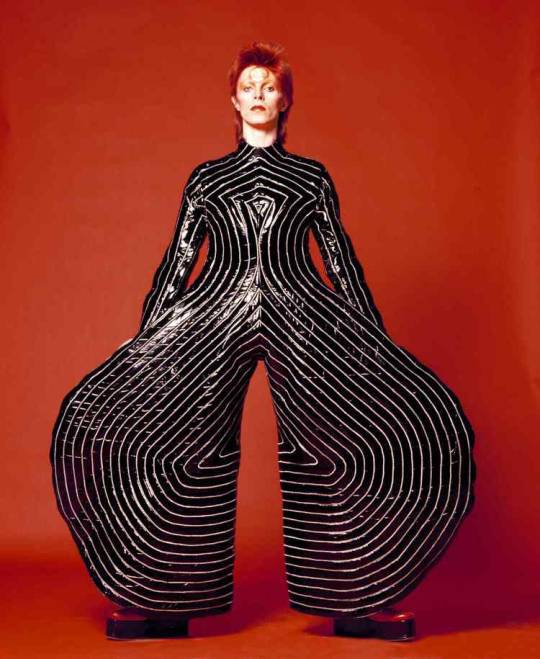

Demi Lovato
Singer and former Disney actress, Demi Lovato recently released a documentary on Youtube, where she talks about her experiences with anorexia, bipolar disorder, and drug addiction, as well as being bullied in school. https://www.youtube.com/watch?v=bpDylTwwunc Throughout her career she has produced music that is more upbeat, and also music about serious topics. In 2008 she released a song called Believe In Me, which was inspired by many of her personal struggles. Trigger warning: the first of the following two links are the official music video, which contains images of self-harm, suicide, and eating disorders. The second link is just the lyrics on the screen.
https://www.youtube.com/watch?v=Qz12ctve2sc
https://www.youtube.com/watch?v=-Zcr3kJ8l0k
In the past few years as she has been working on her own recovery she has become an advocate for mental health, and participates in anti-bullying campaigns.
https://www.youtube.com/watch?v=Tsy01iN1Bcc
https://www.youtube.com/watch?v=hu9Z5naWaEw


Lewis Carroll
Charles Lutwidge Dodgson, a man of many talents, including mathematics and photography, is most well known as Lewis Carroll, the writer of the acclaimed Alice’s Adventures in Wonderland and Through the Looking Glass.
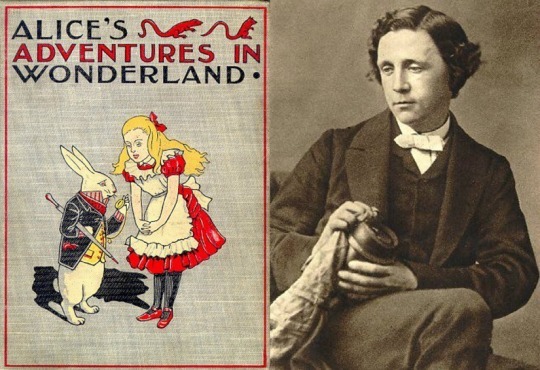
In his book “Autism and Creativity”, Michael Fitzgerald says that “from the many accounts of his life he clearly displayed significant features of [high functioning autism/Asperger's]” (Fitzgerald 194). One aspect of Carroll’s personality that points towards autism was that he was more comfortable around children rather than adults; “he was obsessed with ‘child nature’, in which he saw ‘the primitive and pure, the noble and divine…he yearned for their favor and friendship’” (Fitzgerald 198). Carroll could easily enlighten and humor children, by inventing puzzles, games, and stories, and the children immensely enjoyed his company. This trait most likely came from entertaining his eight younger siblings. Those that knew Carroll growing up commented that he was very close to them as a child, playful and spirited, but as he aged he detached himself from them. “People testified over and over again that ‘when they were children, he was as completely at ease with them, that they found him fluent, kind, open-minded, and open-hearted” (Fitzgerald, 198).
Contrary to his playful personality he showed around children, many adults had the view that Carroll, in person, proved serious and austere; he was never one to make a joke or witty comment. Carroll’s teachings as a lecturer were also seen as rigid; “his students routinely found him clear and knowledgeable but dry if not boring” (Harris-Fain 47). This might have been because of his distaste for lecturing, proven in 1880 when he requested that the church lower his salary because he was working fewer hours and he did not enjoy it. Fitzgerald mentions, that Carroll was noted for having a “singular and perfunctory manner in which he imparted instruction…never betraying the slightest personal interest in matters that were of deep concern to students” (197).
Carroll has been referred to as having “a compulsive orderliness.” Everything in his life was in order, and this way of life often affected those around him as well. Fitzgerald notes that “according to Cohen, his ‘devotion to the rigid laws of logic led to a rigid, uncompromising set of rules that governed his life and spilled over into the lives of others’” (199). One example of Carroll’s orderliness was his reading habits. He was a remarkable reader and had a methodical way that he set about reading, as he believed that paying close attention to detail is the most important rule of reading. Other eccentricities of Carroll’s were his fixation on the number forty-two, which made many appearances in his letters and works, and his “belief that ‘Tuesdays were his lucky days” (Fitzgerald 199). A quite peculiar practice of Carroll’s was his tea making method. Fitzgerald explains that Isa Bowman, a childhood friend of Carroll’s, “recalls him ‘walking up and down his sitting room swaying the teapot to and fro for precisely 10 minutes in order to achieve the desired brew” (199).
Not only did Carroll have a fixation with certain activities and beliefs, but he also was exact in his sense of being the same. Not as in staying the same as others around him, but staying true to his own consistency. For example, Fitzgerald notes that “at Oxford [Carroll] always wore black clergyman’s clothes except when boating on the river, when he would swap them for white flannel trousers and a white straw hat” (200). Carroll was also known for maintaining and obsessing about his interests, specifically photography, writing, and mathematics. He was so fixated on these that he would often skip meals and work into most of the night in order to finish what he had set his mind to. Routines such as these add to Carroll’s orderly lifestyle.
It seems peculiar that a man with such a strict life would be the author of works like “The Hunting of the Snark” that are described as having an “anti-meaning”, “more about being than meaning, listening that seeing, feeling than thinking” (Fitzgerald 200). When Carroll was asked to give an explanation about what this poem was about, Carroll confessed that he himself didn’t know, and he also seemed quite displeased that others were looking for meanings that weren’t there. This is the same man who was described by his headmaster at school as someone who was “so jealous of error, that he [would] not rest satisfied without the most exact solution of whatever [appeared] to him obscure” (Fitzgerald 196). This diversity is exactly what makes Carroll’s writing complex and enjoyed by many. https://www.biography.com/video/lewis-carroll-wonderland-writer-19665987921
It is noted that Carroll’s novel Alice’s Adventures in Wonderland contains no moral, which, odd for the time when it was written, causes the text to be incomprehensible. Some believe that the reason for the lack of a moral was that Carroll was upset at the overuse of “moral baggage” and decided not to prove it. Will Self, an English novelist among many things, described that
“all significant texts are distinguished by the preponderance of a single word. In Alice’s Adventures in Wonderland the word is ‘curious’. The word ‘curious’ appears so frequently in Lewis Carroll’s text that it becomes a kind of toxin awakening us from our reverie. But it isn’t the strangeness of Alice’s Wonderland that reminds us of–it’s the bizarre incomprehensibility of our own.”
While the novel appears to have gone without a moral, Carroll made sure to create a book that would allow the reader to think heavily on topics that they might not normally consider. This is not even mentioning the numerous mathematical puzzles, allusions, and linguistic playfulness.
Carroll’s ability to take the concept of structure and routine with the concept of fantasy and imaginativeness to create “nonsense” literary works are what truly make him a well-recognized and prized author. Psychologists believe that this skill no-doubt came from him having High Functioning Autism.
Credit
Vincent Van Gogh - Serena Stieglitz-Bishop
David Bowie - Rosemary Bennett
Demi Lovato - Sammie Carper
Intro & Lewis Carroll - Janelle Purser
1 note
·
View note
Photo

The Song of Bernadette (1943)
In 1857, Bernadette Soubirous, a fourteen-year-old girl from an impoverished family in Lourdes, France, spotted a heavenly lady standing within a niche of a grotto near the village landfill. The lady spoke to her. Bernadette’s accompanying friends saw nothing, wondering what she could possibly be witnessing. During eighteen trips and visions of the same lady at the grotto’s niche within seven months, Bernadette Soubirous became the sensation of France, even attracting the attention of Emperor Napoleon III. On the eighteenth and final visit, the lady revealed herself as “the Immaculate Conception” – the Virgin Mary. Bernadette’s apparitions and other related phenomena were later recognized by the Roman Catholic Church as miraculous; Bernadette achieved sainthood in 1933.
Based on the historical novel of the same name by Franz Werfel, Henry King’s The Song of Bernadette is a historical drama of Christian faith resting on the convictions of its acting ensemble’s performance and the prestige production status provided by executives at 20th Century Fox. Even for those unaffiliated with the Catholic Church or even the three major Abrahamic religions (like yours truly), the power behind this film is unmistakable. Bernadette might have been canonized as a saint (Catholic saints are not necessarily the most interesting characters to portray onscreen), but it is the local political and ideological tensions surrounding the religious spectacle that are in opposition with Bernadette’s piousness. Suffering in service of God is always a theme during The Song of Bernadette, but the film is not interested in proselytization – it begins with an intertitle noting that: “For those who believe in God, no explanation is necessary. For those who do not believe in God, no explanation is possible.”
The film depicts Bernadette (Jennifer Jones) – the daughter of François (Roman Bohnen) and Louise (Anne Revere) – in a poor French family, attending Catholic school run by local nuns. Her teacher, Marie-Thérèse Vauzous (Gladys Cooper), is depicted as unsympathetic to any of her students that have not studied scripture sufficiently enough. The local parish is led by Abbé Dominique Peyramale (Charles Bickford). When Bernadette begins to have her visions of the Virgin Mary, Sister Vauzous and Perymale are skeptical that this young girl – not the strongest student by any measure – could have such an experience happen to her. But Bernadette’s Aunt Bernarde (Blanche Yurka) and, eventually, her siblings and parents, believe in Bernadette’s honesty in describing these phenomena. Peyramale, too, will come to believe Bernadette. Most notably, Vital Dutour (Vincent Price), the local Imperial prosecutor, and the regional bishop are the antagonists here, fuming in disbelief that such things are happening the way Bernadette is describing them.
Jones, twenty-four years old when The Song of Bernadette was released, was “introduced” in this film, despite appearing in two previous films credited with her given name, Phyllis Isley. Married at a young age and groomed to stardom by producer David O. Selznick (the two were carrying on a well-publicized affair at this time, later marrying in 1949), Jones would have her first glance of Hollywood stardom with a tremendous performance as Bernadette. Bernadette, during the length of the film, grows from a naïve, sickly teenager to an otherworldly, almost angelic young woman. Such a transformation should be scarcely believable, but Jones sells it masterfully. From the moment Bernadette first sees the Lady of Lourdes, Jones’ eyes soften, her hands fold, her shoulders relax. The burdens of the Soubirous’ wretched poverty are forgotten for a moment whenever we see Jones, as Bernadette, at the fateful grotto, not wanting to blink. A scene where Bernadette is asked to eat some nearby plants and wash her face in the spring is a quiet, fascinating moment – Jones insisted on smearing soil on her cheeks to display Bernadette’s incredible faith.
Among the supporting performers, a young Vincent Price, in addition to Charles Bickford and especially Gladys Cooper, sub-headline a talented acting ensemble. Price’s distrusting, borderline atheistic magistrate is an ideal fit for the actor with the greatest mid-Atlantic accent that has ever existed and would later make his career in being the star performer in horror films. Bickford, by his own physicality, is a noticeable on-screen presence. With his priestly clothing, that authority granted by his self-assured performance becomes The Song of Bernadette’s ideological and moral bulwark pushing against the likes of Price. Yet the only other cast member that leaves as lasting an impression as Jennifer Jones as Soubirous must be Gladys Cooper as Sister Vauzous. Cooper’s nun mostly disappears after an introductory scene where she is chastising Bernadette for not remembering an assigned catechism. It is not until the concluding half-hour where Cooper impacts the film with a wallop. Burning with jealousy, suffering unnecessarily, Sister Vauzous has a scene where she is questioning Bernadette why would the Lady appear to such a girl who, according to Vauzous, has never truly suffered like she has. Look at Cooper’s eyes in these few minutes. Look at her watering eyes, blinding Sister Vauzous to her own envy. This is a sterling performance from the veteran Cooper, whose character is not a categorizable villain, but a misguided woman of God who will belatedly realize she has strayed from the Lord’s doctrines.
The Song of Bernadette’s production design by James Basevi, William S. Darling, and Thomas Little brings the viewer to Bernadette Soubirous’ France. By appearances alone, many of the sets – even interiors -– look nothing like something you would find at 20th Century Fox’s soundstages or even the studio’s ranch at Malibu Creek State Park. The cobblestoned, decrepit neighborhoods within the town of Lourdes appear lived in. The outdoor grotto – a painstaking, “plaster job with rock ledges and other details” – is neither a geological reality nor is it a matte painting, looking weathered enough to fool even those most sensitives to Hollywood fakery.
20th Century Fox’s greatest in-house composer, Alfred Newman, is assigned to the score. And his score, fully orchestrated and running from to and from the film’s bookends, almost resembles some of the epic symphonic works by later Wagner or Stravinsky (speaking of Stravinsky, he was attached to The Song of Bernadette, but his score was dismissed by Fox executives; some of the music Stravinsky composed for the film can be heard in the second movement in Symphony in Three Movements). Some of Newman’s greatest non-musical work can be heard here – especially in moments related to Bernadette’s visions and the miracles that are associated with the grotto. With the fluttering of strings and winds – increasing in intensity over time like a seraphic wind when the Lady makes herself visible to Bernadette – circular, arpeggiating string lines, and an expansive oooo-ing and ahhh-ing choir (in addition to a few repetitions of “Sancta Maria, Mater Dei”, which should spoil everything for those not knowing anything about Bernadette Soubirous going into the film and know minimal Latin) complete a beautiful score. The Song of Songs is quoted when Bernadette sees the Lady one final time. There are dozens of other Christian faith-based films that Hollywood has produced from the silent era to contemporary times. I can’t recall any one of those films containing a score that can project the transcendental emotions of religious faith with as much effectiveness.
Conflict in The Song of Bernadette comes from officials who feel threatened that such moments of blessedness and salvation could appear to someone they consider less devoted, faithful, worthy. There are similarities between the stories of Bernadette Soubirous and Joan of Arc, and there is even a moment where Bernadette is told that she should be thankful she did not live in a previous century. Even for those not believing in an Abrahamic God, The Song of Bernadette will be accessible as it, and George Seaton’s screenplay (which might run long for some – your mileage will vary) never congests itself too much into religious theory and philosophy. But it does raise some questions unanswerable to all – questions that the film presents, but will not attempt to answer because it is dependent on the viewer to formulate their own.
Old Hollywood, which was never comfortable with such overtly religious films, could mark a glorious exception with The Song of Bernadette. Astoundingly photographed and produced, and gifted a masterclass cast containing some of the best actors contracted to 20th Century Fox at the time, The Song of Bernadette is a prestige picture of an honorable tradition. Without condescension or righteous disgust towards non-believers, it is a film with a belief in its presentation almost as unshakeable as those beliefs held by Bernadette herself.
My rating: 9/10
^ Based on my personal imdb rating.
NOTE: This is the last write-up for a film that was part of the 2016 Movie Odyssey.
#The Song of Bernadette#Henry King#Jennifer Jones#Charles Bickford#Gladys Cooper#William Eythe#Vincent Price#Lee J. Cobb#Anne Revere#Roman Bohnen#Arthur C. Miller#Alfred Newman#James Basevi#William S. Darling#Thomas Little#Igor Stravinsky#Franz Werfel#TCM#My Movie Odyssey
0 notes